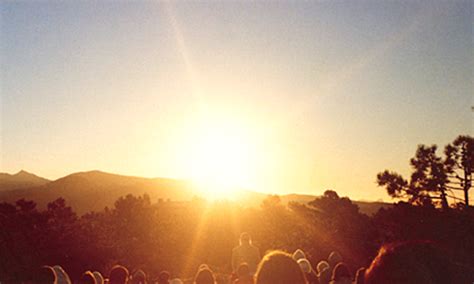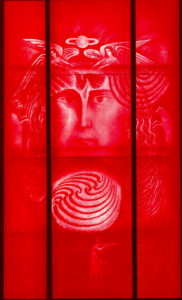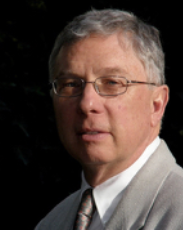
17 Jan From the World Society – On Being Free
Dear Members and Friends of the Anthroposophical Society in Canada,
We stand together at the threshold of a new year. With each day the light pushes against the boundaries of dawn and sunset and with the growing light we feel the possibility, the hope for what might be. The disorientation of the year that has been, wraps around us with an insistent immediacy. Its closeness shrouds the mystery of what now can be in this coming year.
As with all thresholds, we hover between endings and beginnings, between the residue of what we have experienced and the open possibility of the space before us. We can experience this ‘hovering between’ as an invitation into a new beginning. We can also experience it as a hesitation, a holding back. We can become mired between the two. At the threshold of the year that has been, this hesitation comes of its own accord. We can experience the edge of paralysis. We can also experience the openness of hope.
This ‘being in between’ is the essence of all doorways, all thresholds. We leave the familiar and stand before the not yet formed. To hesitate, pondering, is part of a ‘state’ that seeks to become ‘process’. Unless we take the first step, we remain imprisoned in the transition that tries to realize itself. As we consider this tension, we can recognize that it calls up a fundamental challenge for us. We feel it physically, as if we are bound by invisible restraints. We feel unfree. Once recognized, we can realize that this sense of our freedom being impinged upon is part of the shadow of the year that has been. It is as if the conditions given to us over this past year have offered us the possibility to consider at a fundamental level what this experience of freedom is – whether this sense of freedom is also not a state but a process, something that we seek to move toward.
 Approaching the threshold of the Goetheanum’s Great Hall is such a process. Rising up two levels of sweeping helical staircases, whose very form carries us upward, we move through light filled spaces that gradually lead us into the dimly lit, sheltered space before the Great Hall’s entry. Here only a small group can comfortably stand. Great, heavy, deeply carved oak doors mark the ‘in between’. We have come from the complex fabric of our daily lives, risen high above the surrounding landscape, and now stand in quiet subdued light. Behind us, and above us, the great countenance of the scarlet window watches us. Before us, beyond the great oaken doors, the mighty presence of the Representative of Humanity is intended to meet us, face to face. We must imagine this; it is important to imagine this, for these interrelationships are central to the very constitution, the body, of the Goetheanum.
Approaching the threshold of the Goetheanum’s Great Hall is such a process. Rising up two levels of sweeping helical staircases, whose very form carries us upward, we move through light filled spaces that gradually lead us into the dimly lit, sheltered space before the Great Hall’s entry. Here only a small group can comfortably stand. Great, heavy, deeply carved oak doors mark the ‘in between’. We have come from the complex fabric of our daily lives, risen high above the surrounding landscape, and now stand in quiet subdued light. Behind us, and above us, the great countenance of the scarlet window watches us. Before us, beyond the great oaken doors, the mighty presence of the Representative of Humanity is intended to meet us, face to face. We must imagine this; it is important to imagine this, for these interrelationships are central to the very constitution, the body, of the Goetheanum.
As with all thresholds we are called to act. How do we choose to step into the space before us? Do we enter with an inner quietness, observant of what unfolds around us? Do we stride with confidence, sure of what we will meet? So it is, at every transition and, inseparable from it, our embodied experience of being ‘free,’ free to act out of one’s own volition. Rudolf Steiner often calls us to pay careful attention to this enigma of freedom, for the gradual awakening of this experience is a long evolutionary process for all of humanity, one that we are still in the midst of. Central to the age that has come before us is this quest for the individual to come to the experience of standing and being in the world as ‘myself’ – independent, free of all the social constraints that have defined the individual person contextually. It has taken millennia for humanity to gradually begin to overcome the definitions of self, based on ethnicity or culture, religion or family, clan or tribe. Community determined the identity of the individual. Overcoming these constraints was the profoundly significant task of the age that came before ours. Being ‘free’ is gradually becoming deeply embedded in us, inseparable from our current experience of self. This developmental process for humanity is such a fundamental transformation that we are beginning to conflate our sense of self with this ‘independent individual’ who would stand freely in the world.
One of the great gifts of anthroposophy is that this quest for freedom is given its context. We are made aware that we now stand before a completely new stage in our development toward freedom. We are again at a threshold. The whole evolution of the intellectual soul stretches out behind us. Before us stands the immense task of awakening a completely new aspect of soul that has no precedent, the spiritual soul. Fundamental to the conditions of this new threshold is that we must face a deep, question. Having traveled the path toward the free individual, what has been accomplished? Of what significance is this experience of freedom? What does it now demand of us?
As with all fundamental stages of transformation, evolution does not stop. If we try to hold fast what has been accomplished, becoming free individuals, then this very sense of freedom becomes a constraint.
We become profoundly sensitive to whether our ‘freedom’ is at the centre of our collective societal agreements. We become defensive, even violently so, if we feel that the boundaries of ‘my freedom’ are constrained. How is a bridge to be built from all that has been accomplished to what now seeks to arise? We cannot begin to grasp this question without grappling with the tension between our sense of self and this enigma of freedom.
This new stage in human development first became a possibility for us in the 15th century. At first this newly developing soul, this spiritual soul, had to bring about an adaptation of the sentient soul. The Renaissance is the gift of this soul modulation. There then came a similar adaptive process for the intellectual soul. The gift of this process provides us with a new way of seeing the world – science. It was also at this time that three new principles were introduced into our collective consciousness. These principles had been cultivated within spiritual communities for some time and were now brought into the culture as the principles of liberty, equality, and fraternity. They first came as concepts that could be gradually understood, principles that could guide the development of inner capacities once these periods of adaptation were completed and the spiritual soul itself could begin to unfurl. This inner shifting began in the late 18th and into the 19th century. This was the prepared ground into which Rudolf Steiner could place and cultivate anthroposophy.
Anthroposophy now becomes the guidance for unfolding this third soul being within us. Rudolf Steiner describes for us that this is not a linear process. It is, as with all significant transformations, a fundamental re-organization in our soul life. As he describes for us, what must come about is a complete involution of how the intellectual soul functions. From this perspective, the perspective of the intellectual soul, we experience the call to liberty, equality, and fraternity as relating to ourselves. How do these principles ‘affect me’ is the orientation of the intellectual soul. With the awakening development of the spiritual soul the orientation is completely transmuted, and the orientation becomes ‘the other’. The challenge that the spiritual soul places before us is: How does what I do impinge upon your liberty, impinge upon your sense of equality, impinge upon your ability to truly experience yourself as my brother or sister? What had been centred on myself now becomes centred on the other. But this is not a matter of having sympathy for the other, or even having empathy for the other, it is ‘becoming’ the other. How does my insistence on my sense of freedom bind us, imprison us in a way of being that longs to transform itself?
Over this past year we have been repeatedly placed into this question. We have had to live this question. Has the extreme disruption of our accustomed patterns of life given us the possibility of practicing the development of this new capacity? Have we sought to experience how the other experiences, not as a thought or as a concept, but ‘actually experience’ the impact of what I demand for myself?
The journey toward this capacity fully living within us is a long one. At the same time can we see that the world situation, that all that we have lived through in this past year, is forever giving us the possibility to take a first step toward a way of being that is almost impossible for us to imagine?
Bert Chase
General Secretary for Canada
